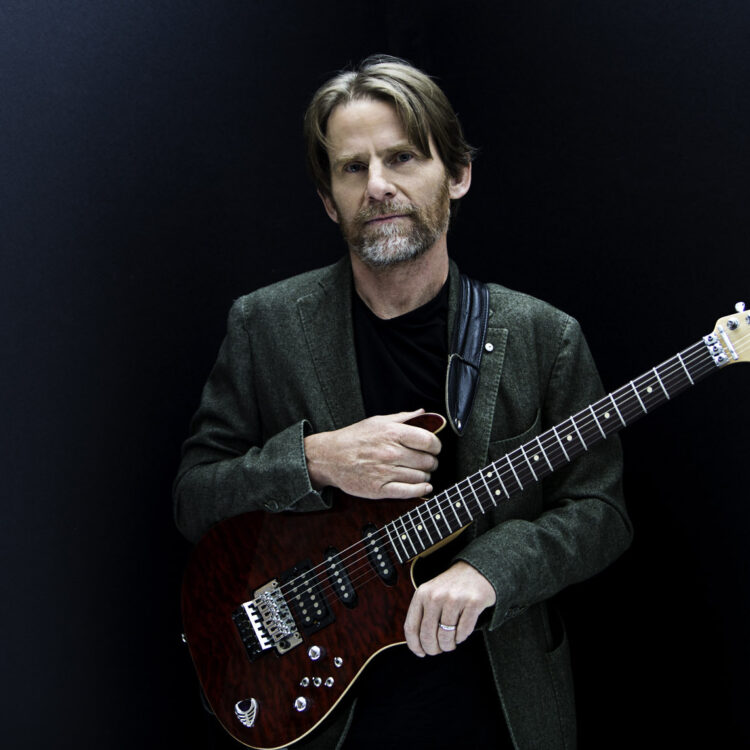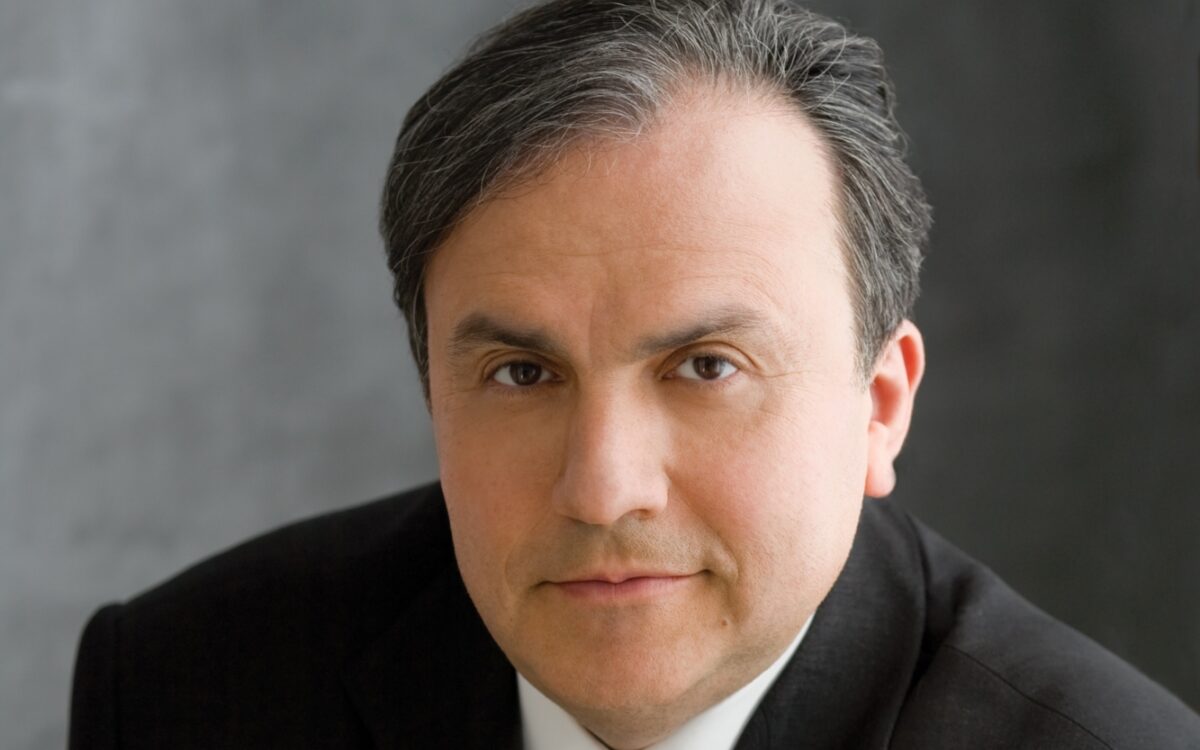Urban Ocean
Composition and premiere: Steven Mackey wrote Urban Ocean on a commission from the Aquarium of the Pacific as part of a series of music-related initiatives. It was premiered at the Long Beach (CA) Performing Arts Center’s Terrace Theater by the Long Beach Symphony, Enrique Arturo Diemecke conducting. First BSO and Tanglewood performance: Friday, July 26, 2024, Andris Nelsons conducting.
When I was first asked to compose a piece of music considering the notion of “urban ocean” I confess that I only heard ocean and thought of the scores of scores inspired by the sea. As I thought more about the governing metaphor—“the convergence of wildlife, industry, recreation, and nature that takes place off the coast of Southern California”—I realized that this was actually more in tune with my musical predilections. The assignment gave me an opportunity to embrace a big world, merge contrasts, and celebrate the glorious cacophony, all notions that in one form or another, have preoccupied me previously.
Urban Ocean is 11 minutes long and casts the sea as mysterious, deep, vast, powerful, and teaming with life of which we can usually only perceive the tip of the iceberg, so to speak. The land is bright and bustling with bittersweet humanity. The two worlds are represented in their own distinct sections then listen to, retreat into, emerge from and overwhelm one another. The end strikes a delicate balance between both.
—Steven Mackey
Steven Mackey grew up in in 1960s-70s California and became both a highly accomplished electric guitarist and a world-class athlete, competing as a freestyle skier—both high-level dreams for many a California kid of his generation. Electric guitar was Mackey’s earliest and most important entry point to a life in music—note the important distinction of “electric guitar,” versus the generic “guitar.” His first influences and experience as a performer were in rock and blues, but in college, studying guitar and lute at the University of California, Davis, he veered definitively toward classical concert music. (This was after he’d initially entered college to study physics.) He abandoned the guitar and rock music and became, he has said, a zealot for European-oriented new music. He studied composition at the State University of New York, Stony Brook, for his master’s degree and then with Donald Martino at Brandeis University outside of Boston, where he earned his doctorate. He not only made a point of mastering existing compositional tools but also attained the understanding and the wherewithal to create his own. He has since brought that experience to bear on his teaching at Princeton University, where he was appointed to the faculty in 1985 and has remained ever since, becoming a (very young) full professor there in 1993.
Mackey was a Composition Fellow of the Tanglewood Music Center in summer 1984, when John Harbison was composer in residence. Two of his pieces were performed here that summer, and he has returned on several occasions as a composer, guitarist, and visiting faculty member. His lovely Madrigal was commissioned for the 75th anniversary of Tanglewood in 2015; his Gathering was written for the 65th anniversary of the Tanglewood Music Center in 2005. This year he is co-director, with Tania León, of the TMC’s Festival of Contemporary Music this weekend, which features performances of several of his pieces.
Mackey’s zealotry toward what we’ll call notated music and its rules was relatively short-lived: he felt a strong pull to take what he’d learned in that world and combine it with the immediacy and freedom he had as a rock performer—to, as he put it, take a cue from the jazz great Thelonius Monk and discover how to write the right wrong notes, the blue notes, the seeming accidents, the rule-flouting surprises that emerge from direct experience and from following where expressive needs lead. (One section of his orchestra work Eating Greens is an homage to Monk.) He began to arrive at his new language in part by returning to the electric guitar, bringing his own instrument, and his own performance sensibilities and quirks, into the concert-music environment. Whatever else he arrived at, movement and energy were fundamental to his goals.
Early on in his career, Mackey’s hybrid approach synced well with an ensemble with similar values, the Kronos Quartet, which since the 1970s has stretched the idea of the chamber music into jazz, rock, world music, and all sorts of stylistic amalgams via collaborations with poet Allen Ginsberg, rock musician Björk, Romanian band Taraf de Haïdouks, the Modern Jazz Quartet, and literally hundreds of contemporary composers from Ástor Piazzolla to Wu Man. Mackey wrote among the vanishing for Kronos and soprano Dawn Upshaw, following that with a triptych for Kronos plus the composer on electric guitar. In his first return to Tanglewood after his fellowship year, Mackey joined the Kronos Quartet to perform the triptych’s Physical Property during the 1992 Festival of Contemporary Music. (He performs the piece again with TMC Fellows on the FCM concert of Sunday, July 28, at 10am.) He has said that much of his grasp of orchestration came from attending, as often as he could, the morning rehearsals of the BSO in the Shed as they worked through that summer’s wide range of repertoire.
Mackey describes his 1989 Indigenous Instruments, for a “normal” chamber ensemble of flute, clarinet, violin, cello, and piano, as an attempt to write “vernacular music from a culture that doesn’t actually exist,” retuning several of the instruments to arrive at an undiscovered, unique harmonic world. His approach demonstrated both his deep interest in the impact of sound itself but also a commitment to an overall organic integrity connecting the idea stage all the way through to the individual notes and gestures. All along, he has had to invent pragmatic new notational techniques for sounds outside of the classical norm—bent notes, microtones, layered and unsynchronized gestures, non-pitched sounds, levels of distortion or phase or reverb, etc. He also has needed to translate sounds that originated in one sphere, such as distorted rock guitar, to another, such as, say, an orchestral flute section. He frequently still consults players about the capabilities of their instruments, a crucial step in music that aims for the immediacy and impact of live, performed music. Every work strives for musical integrity, and part of that is its success in getting across the work’s overall affect—its various moods, even if ambiguous and multilayered; its drama, its humor, its familiarities and surprises.
Steven Mackey’s lifelong search for musical adventure has led him to associations with significant artists and ensembles around the world, including his collaborator, the writer and vocal performer Rinde Eckert, for Ravenshead and Dreamhouse, the latter a large work for orchestra, guitar quartet, and vocal ensemble commissioned by Dutch Radio. He has worked with Michael Tilson Thomas and both the San Francisco Symphony Orchestra and the New World Symphony; with the Los Angeles Philharmonic and both Esa-Pekka Salonen and Gustavo Dudamel; with the BBC Philharmonic and violinist Leila Josefowicz for his violin concerto Beautiful Passing (performed at Tanglewood in 2014), and many others. He has written concertos for himself on electric guitar as well as concertos/concerto-like works for cello, piano, organ, saxophone quartet, timpani, and trumpet; solo and chamber music, large-ensemble works, and uncategorizables with electronics, dance, or multimedia, e.g., his Orpheus Unsung, an “electric guitar opera,” which tells the Orpheus myth without words through music, dance, and video imagery. The Boston Symphony Orchestra commissioned his Concerto for Curved Space and gave the premiere under Andris Nelsons in January 2023.
As the composer notes above, the opportunity to compose a work commissioned by an aquarium created all sorts of associations between environment and sound. He calls his approach to creating the textures of Urban Ocean “painterly,” an idea one can hear in swoops and wide brushstrokes of sound, in contrast to traditional chord progressions or melody. Gestures reflect the physical power and presence of the sea, the Debussy-like glimmer of light on waves, the transient curl of a whitecap… but also the presence of the human activities of commerce and entertainment. Composing part of the piece while on a family vacation in Jamaica, Mackey worked the heavy dance beat of a distant oceanside club into his teeming environment as well—just one of seemingly several unexpected “found objects” the composer encounters in this exuberantly active, multilayered sonic vision.
Composer and writer Robert Kirzinger is the Boston Symphony Orchestra’s Director of Program Publications.


